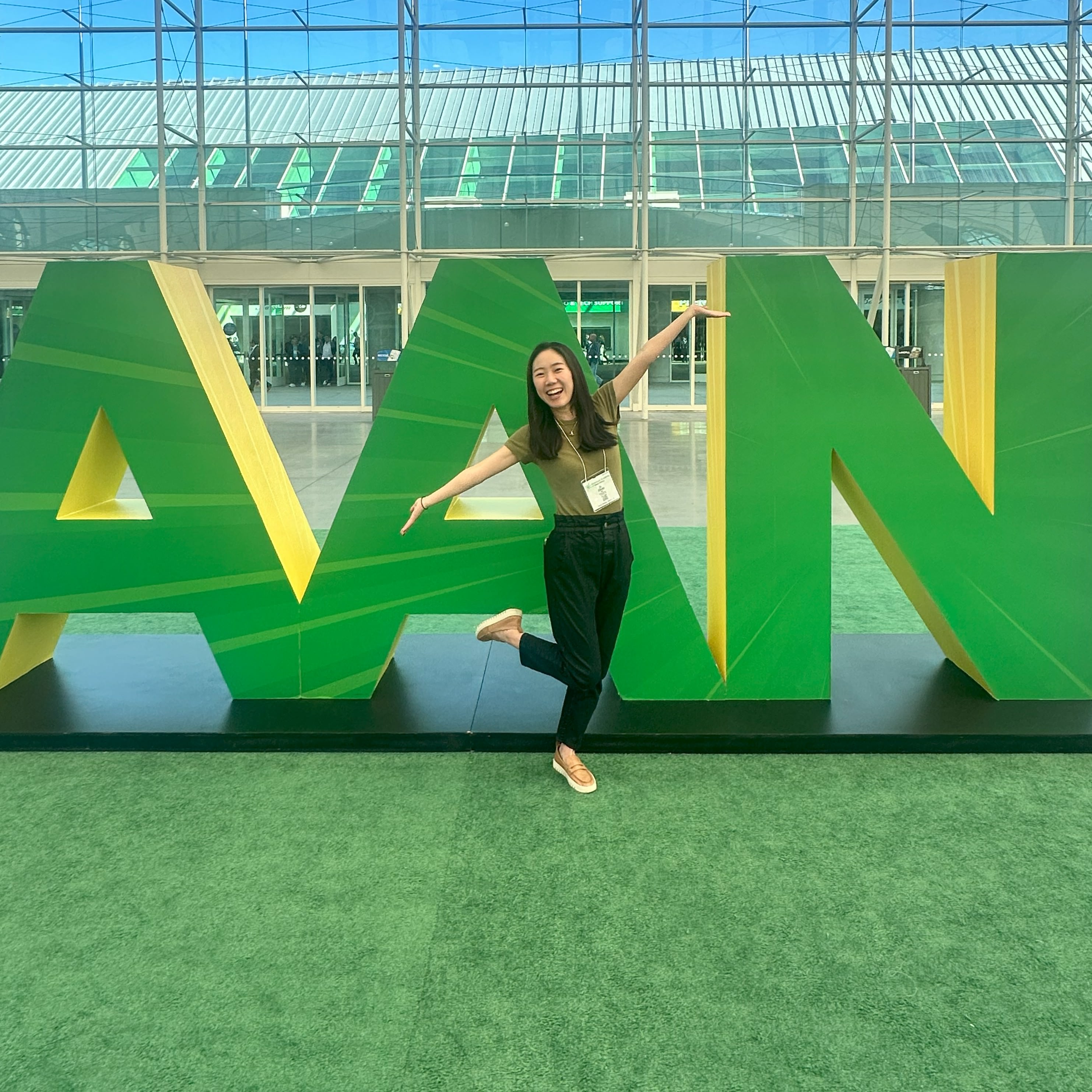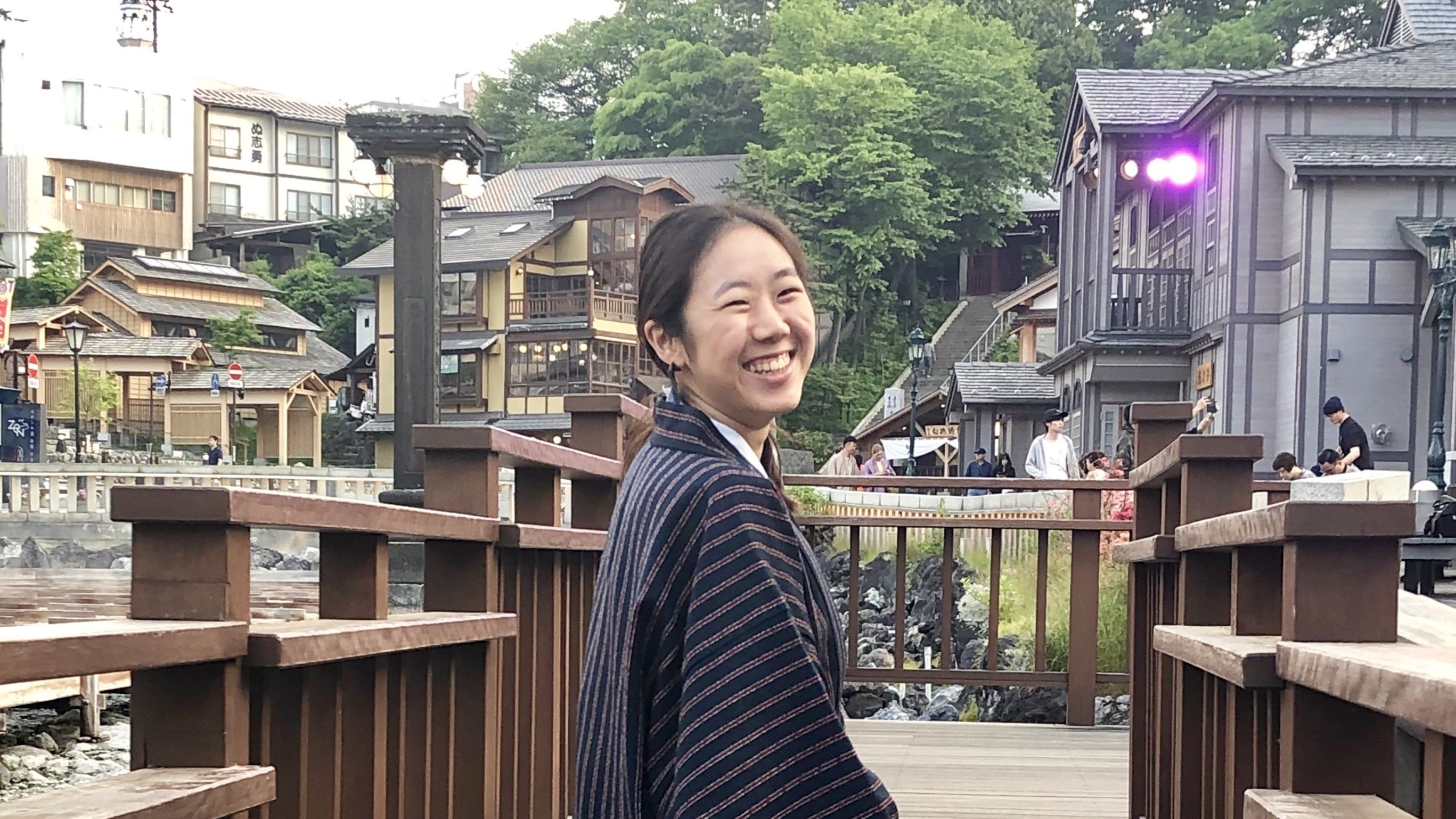Above: Ohno visits Kusatsu Onsen in Gunma Prefecture, Japan.
By Abby Farrell
Like many in the skating world, Ai Ohno’s love for figure skating came to be in kindergarten after attending a friend’s birthday party at her local mall’s skating rink. Since then, she has remained connected to the sport as a judge while juggling a demanding career in the medical field.

Although the sport didn’t come naturally to her at first, her passion for skating remained steadfast through middle school.
But it was in high school that Ohno had the sinking feeling that she was not progressing as fast as her peers and questioned her future in the sport.
“High school was a rough time. I wanted to quit skating so bad,” Ohno said. “I just felt like I hit my invisible glass ceiling where I didn't feel like I could get better than this. … I feel like a lot of people hit their roadblocks in skating and for me the double Axel was the big block. I couldn’t do it clean, I couldn’t land it clean, and I think I at that point I started questioning, do I really enjoy this anymore? And then I kind of lost the fizz for it”
It was at this time that Ohno’s mom convinced her to try trial judging due to a shortage of test judges in their area. With a new interest in judging, a switch to ice dance and eventually joining the collegiate skating team at the University of California, Los Angeles, Ohno found that fizz again.
“I think judging has helped me find a new appreciation for skating,” she said. “The skating community is wonderful, and it's been a great way to give back and keep my ties within the sport.”
Though she hung up her skates after graduating from UCLA, Ohno has maintained her commitment to judging throughout various chapters of her life, including as she balances her career as a resident physician in the field of neurology at the Loma Linda University Medical Center.
It was thanks to a talented teacher, as well as a personal connection, that led her to where she is today.
“Back in high school, I took an AP psychology class, and the teacher was amazing,” Ohno said. “She got me interested in the human mind and how our thoughts work and how a person can behave so differently, even when put in two very similar environments. Unfortunately, that was also the time when my grandma was diagnosed with Alzheimer's, which really affects one’s memory. It overlapped in the time when I was learning about human memory as well, so I knew early on that I was interested in the mind and the brain.”
Though judging and working in a medical setting may look vastly different, for Ohno, the two look similar in many ways.
“For one, as judges we have a set of guidelines that we follow to help us come to our mark and we use a set of bullet points to help us decide plus or minus when deciding the GOE of an element,” Ohno said. “Similarly in medicine, we learn guidelines. But what you learn pretty quickly is that no person will follow that guideline to a tee. … Your job is to use your knowledge and follow that guideline but also be able to spot the differences and use your judgment to be able to help this person in front of you the best way possible.”
Beyond judging and medicine, Ohno remains deeply connected to her Japanese heritage.
“My dad came here when he was around 10 years old and my mom came here in her mid-20s for graduate school, so they definitely brought their roots from Japan with them,” Ohno said. “I'm fortunate that I grew up in a household where my mom was diligent that we speak Japanese, and I'm grateful for it now because otherwise I don't think I would have picked it up,”
She has also made an effort to visit Japan as much as possible to see family still living there.
Through her education, life experiences and heritage, Ohno recognizes the beauty in bringing unique perspectives into any situation.
“In terms of healthcare, there are subjective things that influence a person's judgment,” Ohno said. “We all have our biases like your cultural background and your patient’s cultural background and how that can influence what you see in front of you. Your pain is also such a subjective scale and everyone has their own scale. As a provider, being able to meet that person where they're at is important.”
She expressed the same sentiment in regard to judging figure skating.
“I think one of the great parts about being a judge is that we use our knowledge but apply it our own way, and that's what makes it special to be at that table, because at the end of the day, there's a reason why there are so many judges on the panel. It's because we all bring something different to the table in our own way,” she said.


